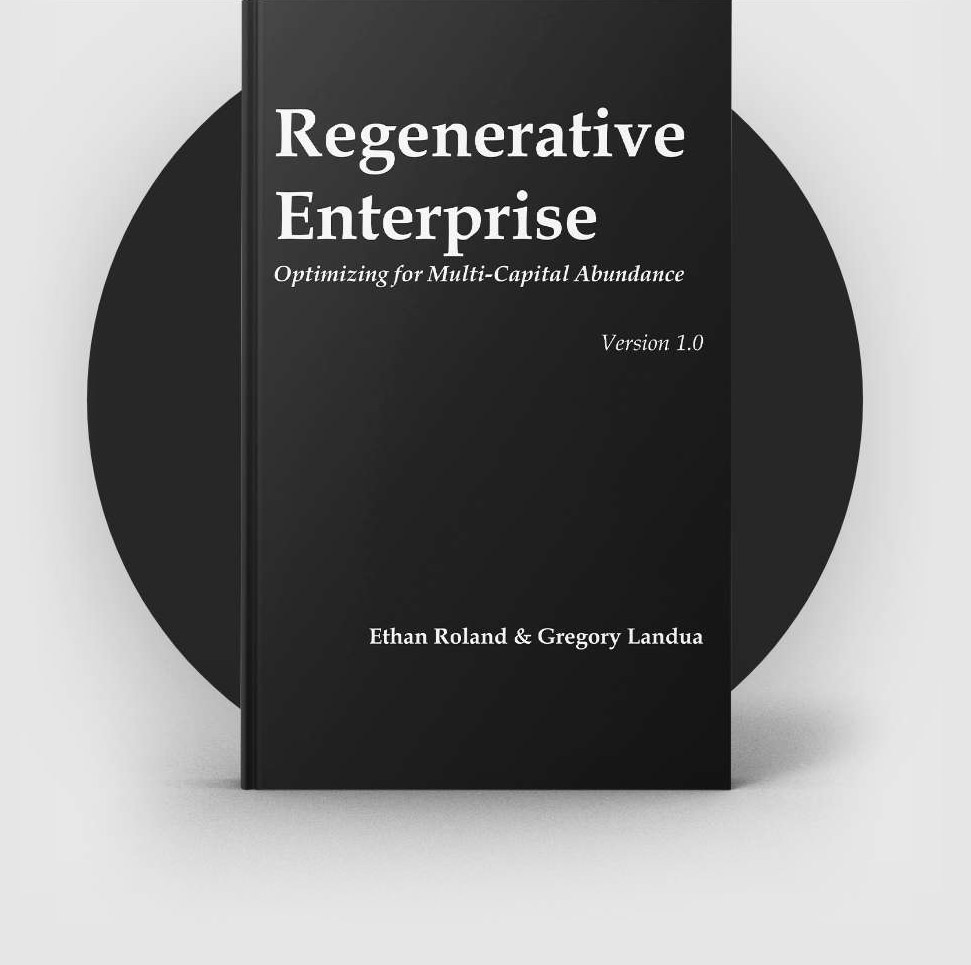
By mimicking ecosystems and applying the principles of design science, any landscape or venture can be patterned for net-positive impact on ecology and society.
Economies systems are like ecosystems and everyone is an investor. Anyone can be a financial expert, and use money as a tool to catalyze personal agency, community wealth, and local economic resilience.
Regeneration is radically different than sustainability, and can transform whole industries when applied to business, investing, and human development.
To heal and regenerate modern cultures, look to the indigenous principles and lifeways of the land where you live, the native peoples of that place, and your own ancestral lineage.
No one stops learning, ever. Participatory action learning creates the most effective and holistic growth of people and businesses, especially when combined with enterprise-driven eco-social regeneration.
Gregory Landua and Ethan Roland Soloviev met in Tennessee during their Master’s programs at Gaia University. They helped to design and run the Financial Permaculture Conference, which blended the ecological design science of Permaculture with a bundle of personal, local, and systemic financial, investment, and economic insights generated by the Solari community.
During follow-up consulting engagments, the authors realized that a single unified framework integrating multiple forms of capital would enhance the effectiveness of whole systems design and action. They experimented with different arrangements and even different forms of capital (including “temporal capital,” “labor capital,” and “human capital”) before settling on the Eight Forms in their current state. They were also informed by the work of Jon Young and the global Cultural Mentoring communities, who had developed a framework called the “Eight Shields” from multiple indigenous lineages around the world.
As the authors crafted the chapters of the book around the central Eight Forms of Capital framework, they invited in the influences of various schools of thought. Chapter 4 draws heavily on Permaculture, as refined and elaborated in Gregory & Ethan’s agricultural and consulting experiences. Chapter 5 brings in strands of Integral Theory from Ken Wilber, along with insights of personal development from Re-Evaluation Counseling. Chapter 6 is sourced primarily from Permaculture, as evolved by Dave Jacke & Eric Toensmeier in Edible Forest Gardens and by Darren Doherty of Regrarians. It also includes a principle inspired by the writings of Martín Prechtel and his school, Bolad’s Kitchen. Chapter 7, in name and attempted theme, emerges from the work of Carol Sanford, who for more than 40 years has been the primary steward and developer of the Regenerative Paradigm – without her work, none of us would be using the term “Regeneration” today.

No idea, or book, emerges from an entirely blank slate. Everything that humans think is influenced in some way by ideas from the past and the memetic ecosystems in which they travel. This page seeks to make explicit the lineages from which Regenerative Enterprise was born, and thereby invite a greater conscious of the origins and sources of all books, and ultimately all thinking.
To see how the details of these origins and all the lineages come together, get yourself a copy of the book now!